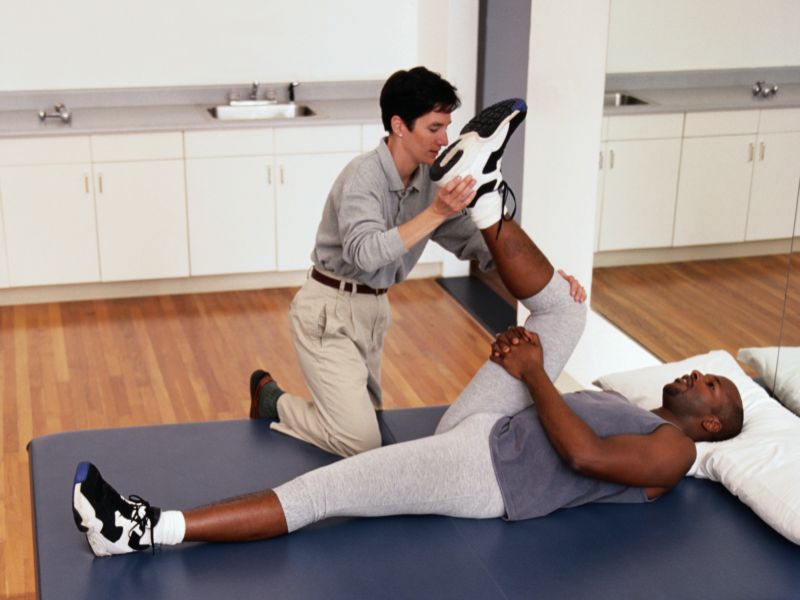
SUNDAY, Jan. 6, 2019 (HealthDay News) -- Physical therapy helps people recover from sports injuries, but it also can help prevent them, an expert says.
This approach, called proactive physical therapy, can help correct imbalances in amateur and professional athletes that can increase the risk of injury, according to Dean Plafcan, a physical therapist with Penn State Health.
"Consider enlisting a physical therapist or athletic trainer to look for weaknesses or imbalances in one part of the body that might be impacting other areas," Plafcan said in a university news release.
"The result of identifying problem areas and doing targeted therapy and training can be better athletic performance with less risk of pain and injury," he added.
Plafcan noted that many amateur golfers complain about back pain, and the likely reason is their desk job. Spending a lot of time sitting leads to shortened hip flexors, the muscles on the front of the hip. This forces the lower back to do more of the work during a golf swing, resulting in pain.
"Proactive physical therapy can diagnose this imbalance and improve hip mobility," Plafcan said. "The result is less risk of back pain, plus a more powerful downswing and greater yardage on the golf course."
He also said that one-sided body use in many sports leads to physical imbalance.
"A baseball player, tennis player or golfer constantly works one side of the body more than the other, depending on whether the athlete is right-handed or left-handed," Plafcan said.
"Yes, these athletes need great strength on their dominant sides to excel in their sport, but weakness on the other side of the body can lead to overcompensation and injury," he explained. "By targeting exercise to increase symmetry in strength and flexibility, the athlete can improve overall performance."
More information
The American Academy of Orthopaedic Surgeons offers sports injury prevention tips.
Back

The news stories provided in Health News and our Health-E News Newsletter are a service of the nationally syndicated HealthDay® news and information company. Stories refer to national trends and breaking health news, and are not necessarily indicative of or always supported by our facility and providers. This information is provided for informational and educational purposes only, and is not intended to be a substitute for medical advice, diagnosis, or treatment.






